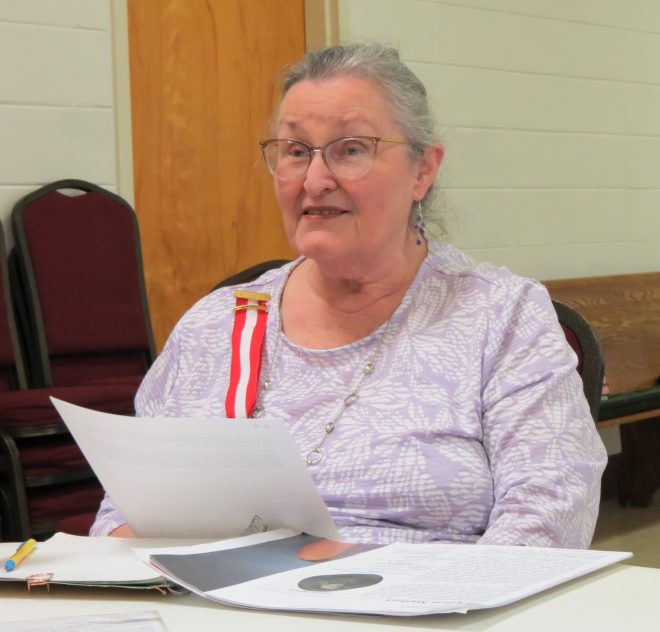UDC chapter learns history about Secretary of State during WBTS era
Published 4:04 pm Sunday, January 12, 2025

- SHARING SECRETARY OF STATE HISTORY: John B. Gordon 383 chapter Historian Joan Cooper presents program to UDC members. (Submitted Photo)
THOMASVILLE- The new year began for John B. Gordon 383 UDC chapter with a meeting being held to learn more about American History and leaders that were involved during the 1860’s. President Sheila Tucker introduced speaker Joan Cooper who is the chapter Historian. She presented the President General’s program “Stephen Russell Mallory” written by Susan E. McCrobie, Historian General 2022-2024.
Mallory was born in 1812. His father was a civil engineer, who moved his family to Cuba when Mallory was an infant. Later, they moved to Key West, Florida. After his father died, his mother opened up a boarding house and did nursing to support her family. Cooper said, “At 19 years old, Mallory was appointed by President Andrew Jackson to be Inspector of Customs in Key West, Florida.”
Mallory married Angela Moreno in 1838 in Pensacola, Florida. They had nine children. But five of them died at an early age. He became a lawyer, then a judge, and later Judge of Probate. In 1845, he received a political appointment as Collector of Customs at the port of Key West. He volunteered in the Seminole Indian War in Florida.
Trending
Cooper shared some interesting facts concerning Mallory’s assets. In 1850, he accumulated real estate assets of around $5,000. In today’s money, that would be about $200,000. He was elected Senator to the United States Senate for Florida in 1850. He was living in Pensacola at that time. At that time, he was worth around $12,000 ($450,000 in today’s money).
In 1861, he returned home, after Florida’s secession from the Union. CSA President Jefferson Davis appointed Mallory the position of Secretary of the Navy.
Cooper informed the members, “Mallory organized the manufacturing of iron plates within the South to add shields for the hulls of wooden ships for both river and coastal defense. Later he organized the Torpedo Bureau that developed underwater explosives to inflict damage on the armor plates.” Mallory’s tactics used were successful in disabling the USS Ironsides in the Charleston Harbor. The Union lost more vessels by torpedoes than from any other causes. He is credited with having the first combat submarine, the CSS Hunley, to sink an enemy warship. “The first ship lost to the “torpedoes” was the USS Cairo,” said Cooper.
When Richmond fell, Mallory left with President Davis heading down South from the capital. They went separate ways in Washington, Georgia. Mallory headed for LaGrange, Georgia, where he was captured. He was held as a political prisoner in Fort Lafayette, New York. His wife wrote a letter to President Andrew Johnson to release her husband due to his failing health. Mallory was released on parole in 1866 and returned to Pensacola, where he practiced law until his death in 1873.






